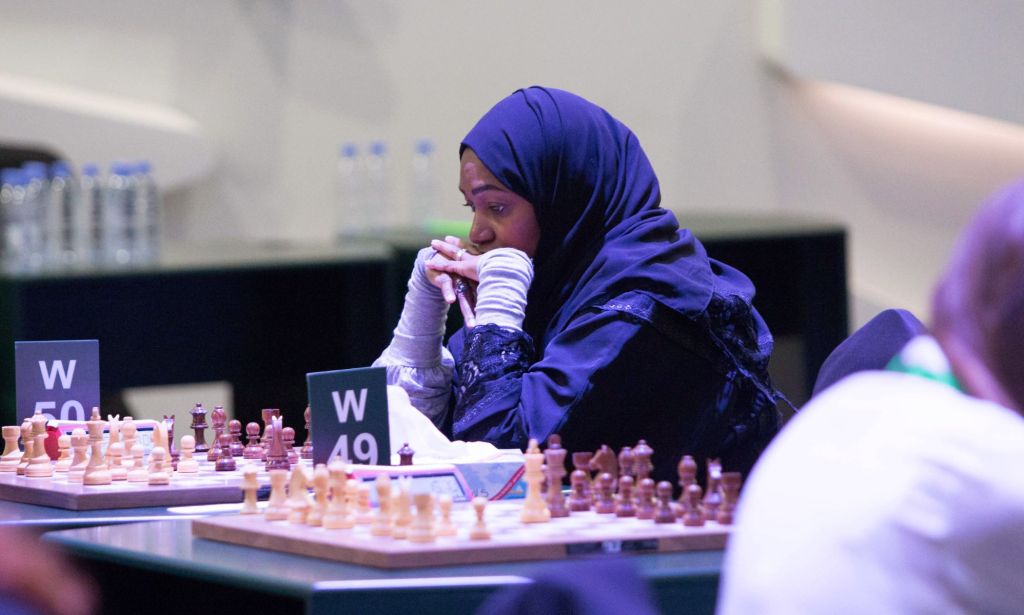What the ban on trans women in chess really says about the ‘debate’ on women’s sports

The chess world governing body has imposed a two-year ban on trans competitors. (Getty Images)
The toxic, pseudoscientific ‘debate’ around trans folks jeopardising women’s sports makes even less sense in chess, where the power of the human brain reigns supreme over physicality, and where they now find themselves excluded.
The world of chess gained international media attention on Wednesday (16 August) when a new ruling from the International Chess Federation (FIDE) officially banned registered trans women from participating in women’s events.
The regulatory organisation that governs international chess competitions said that trans women have “no right” to participate in official FIDE events for women until “further analysis” can be done, which could take up to two years.
Additionally, if a trans man holds titles in women’s categories, the “women titles are to be abolished”. But if a player holds titles and transitions to female, all the “previous titles remain eligible”.
Yosha Iglesias, a FIDE master and chess coach from France, wrote on X (the platform once known as Twitter) that the policy made it sound as if trans players are the “biggest threat” to women in chess.
The National Center for Trans Equality said the new policy “relies on ignorant anti-trans ideas” and is “insulting to cis women, to trans women, and to the game itself”.
The policy is part of a familiar anti-trans dogwhistle line of thinking that LGBTQ+ folks have been seeing for years. It is thinly veiled bigotry that seeks to bar trans women from competing in women’s categories.
These bans argue there’s a disparity in physicality and that trans women have an alleged unfair advantage over cis women.
Yet, several studies, experts, sporting teams, athletes and activists have testified that this discrepancy doesn’t actually exist.
Conservative lawmakers championing trans sports bans in the US have continuously failed to cite specific cases in their states where trans athletes, by and large, had advantages over their cisgender peers.
Despite the actual science, multiple sports governing bodies worldwide have instigated trans bans in recent years over alleged concerns around ‘fairness’.
The argument that trans women have a so-called ‘advantage’ in physical sports holds even less water in the realm of chess, where physicality has little to no place in tournaments. Chess is a game of strategy and requires immense intellectual fortitude to think quickly under pressure.
Sexism and bigotry are huge issues within chess.
FIDE’s new policy positions trans women as a danger to the integrity of women’s chess, as if being assigned male at birth makes an individual innately smarter than others.
People on social media were quick to point out how wildly “sexist” and bigoted the FIDE policy is.
Though chess should be an area where all people can compete equally, men are disproportionately represented in the game. In 2020, among the more than 1,700 regular grandmasters worldwide, only 37, are women, according to The New York Times.
Earlier this month, on 3 August, a group of women chess players said in an open letter that they are fed with sexist behaviour and sexual violence in the world of chess.
The letter, first released by 14 of France’s top women chess players, said harassment, abuse and assaults are “still one of the main reasons why women and young girls, especially in their teens, stop playing chess”.
Since its publication, the open letter has grown to include more than 120 signatures from women chess players, managers, arbiters and managers worldwide.

FIDE responded to the letter by saying it “stands firmly against any behaviour and actions based on sexism including any form of abuse”. The body added it would “continue our work on a safeguarding policy for women in chess”.
But, instead of trying to improve the world of chess, FIDE used its energy and resources to create its new anti-trans policy that will harm players already facing stigmatisation in the game.
FIDE’s new policy, like other anti-trans sports bans, sends a wider message to trans people that they are not welcome in certain spaces.
Research shows that trans people disproportionately struggle with higher rates of suicidality, anxiety and depression as well as facing deadly violence due to discrimination. Trans youth have pointed out that anti-trans policies are harmful to their health and wellbeing.
How did this story make you feel?

